Subscribe to our joint NEWSLETTER for
EUTROPIAN &
COOPERATIVE CITY MAGAZINE


The InclusiveCity project strives to enhance placemaking strategies within the framework of the 15-minute city concept, while placing a strong emphasis on inclusivity.
The project emerges from a wealth of prior initiatives addressing various aspects of urban development. It integrates findings from projects like PlaceCity, in which an inclusive approach to placemaking was tested in selected neighbourhoods in Vienna and Oslo.
The project is a consortium of partners from Austria, Belgium, Hungary, Italy, Norway, and the Netherlands, funded by Driving Urban Transitions.
In the framework of the 15-minute city concept, our endeavor is to develop local services and critical placemaking methods as fundamental principles for participatory urban development. We seek to mitigate adverse effects such as commercialisation and gentrification while ensuring the inclusion of underrepresented groups. Through Urban Living Labs in five partner cities across Europe, we aim to create inclusive public spaces that address the diverse needs of communities.
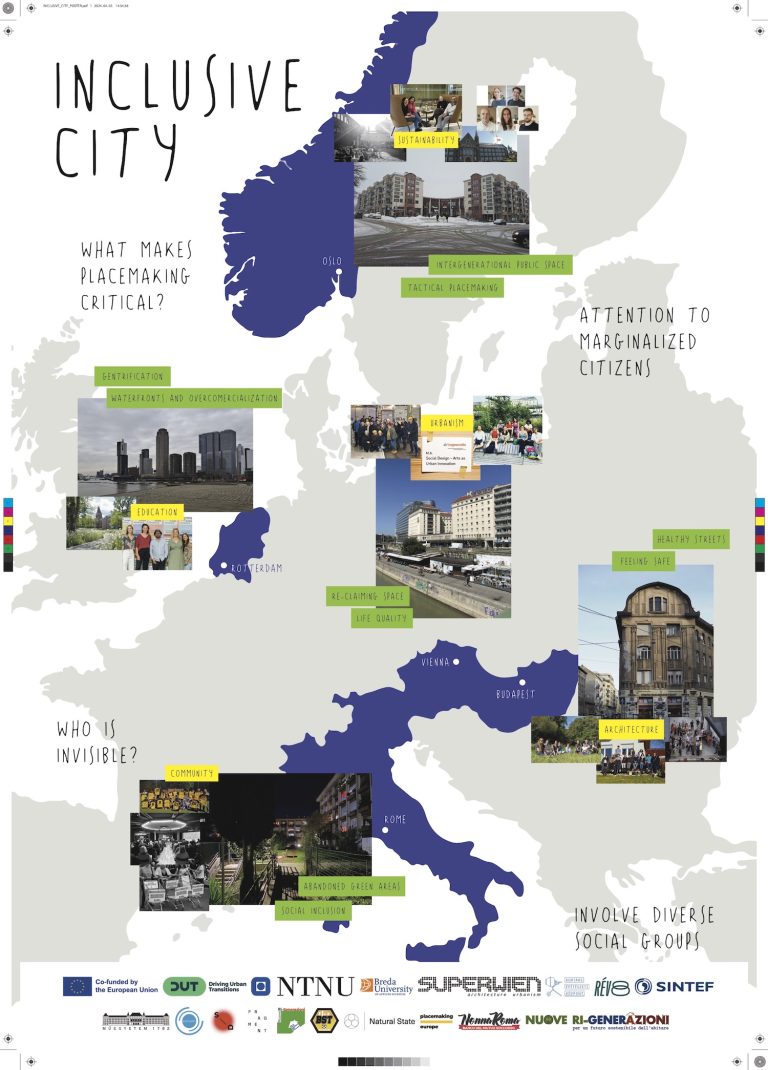
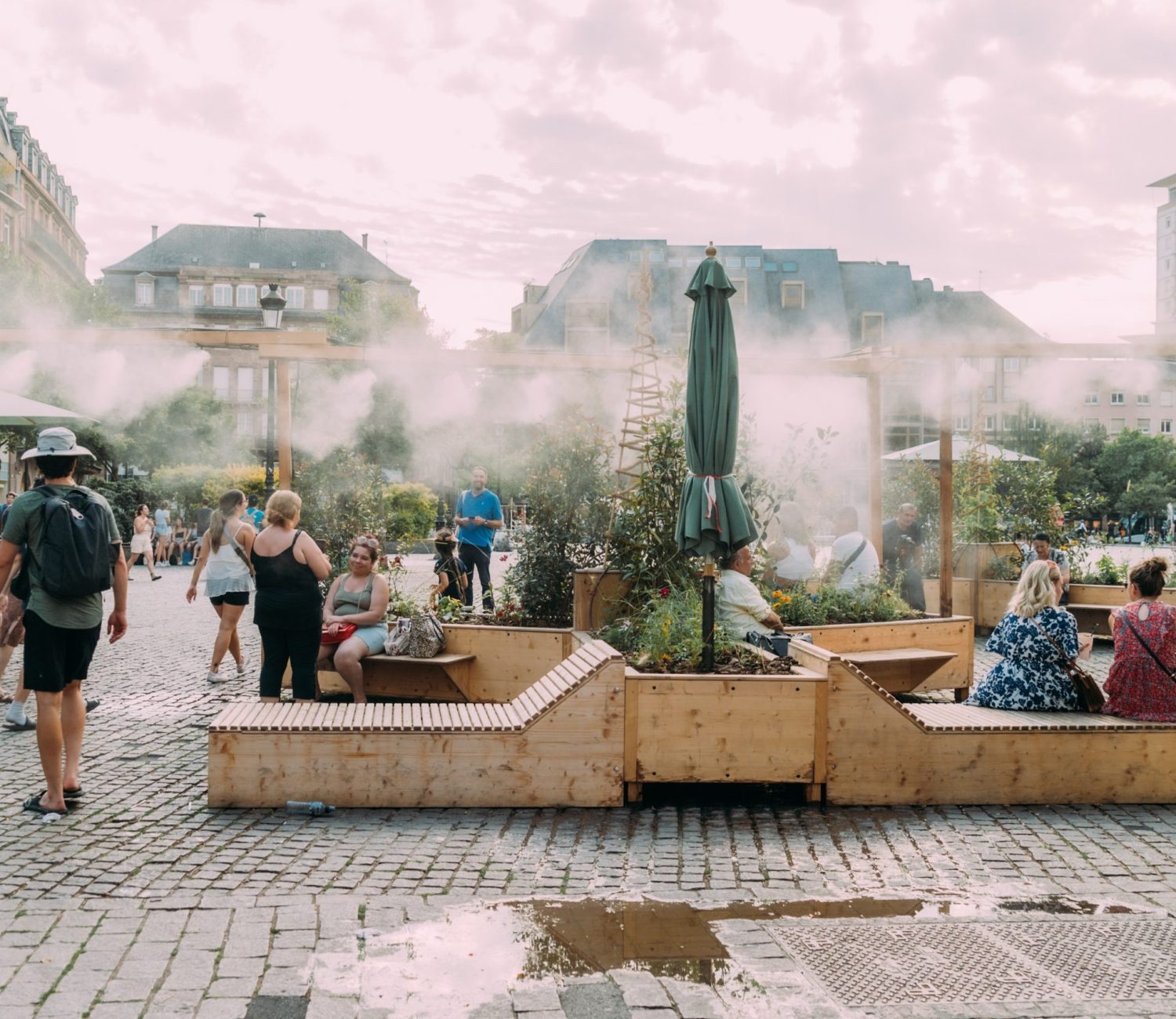
The project relies on the intertwined approach of the 15-minute city concept and critical placemaking designs that prioritise the creation of vibrant, inclusive, and sustainable communities. While the 15-minute city emphasises the proximity of essential services and amenities within a short distance from residential areas, critical placemaking delves deeper into the social, cultural, and environmental dimensions of urban spaces. It seeks to engage residents in the process of shaping their neighbourhoods, fostering a sense of ownership and belonging. Together, these concepts promote walkability, connectivity, and accessibility while fostering diverse and dynamic public realms. By combining the principles of the 15-minute city with critical placemaking, cities can create environments that not only meet residents’ practical needs but also enrich their everyday experiences, nurturing thriving and resilient communities.
As a project partner, Eutropian drives concept creation for the five case studies and contributes to the research activities focusing on critical placemaking.
In Vienna, together with urban planning and architecture studio superwien and the Social Design Studio of the University of Applied Arts, Eutropian will work on the de-commercialisation and social diversification of the Dunaukanal.
Building on our experience in designing exchange and learning trajectories, we’ll contribute to developing an exchange network to facilitate knowledge transfer, in addition to providing support for communication, dissemination, and media strategies.
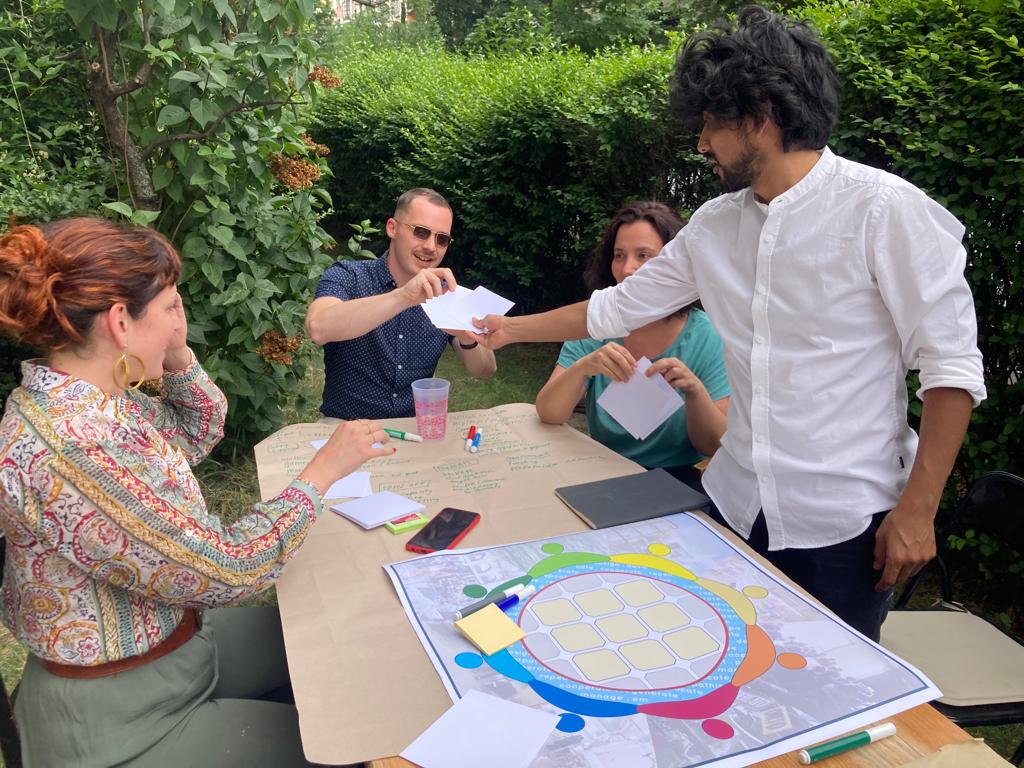
To test methods with concrete field experiences, five pilot projects (Urban Living Labs) will be established in five European cities: Budapest, Oslo, Rome, Rotterdam and Vienna. These pilots, established with the involvement of local stakeholders, communities, and specific target groups, will address various Sustainable Development Goals corresponding to local challenges.
Based on the approach of critical placemaking and local development, the pilots will be connected by a shared methodological framework informed by the tools and methods developed by the partnership, thus creating a circular research & innovation logic that connects research, policy design and toolbox development with Urban Living Labs.
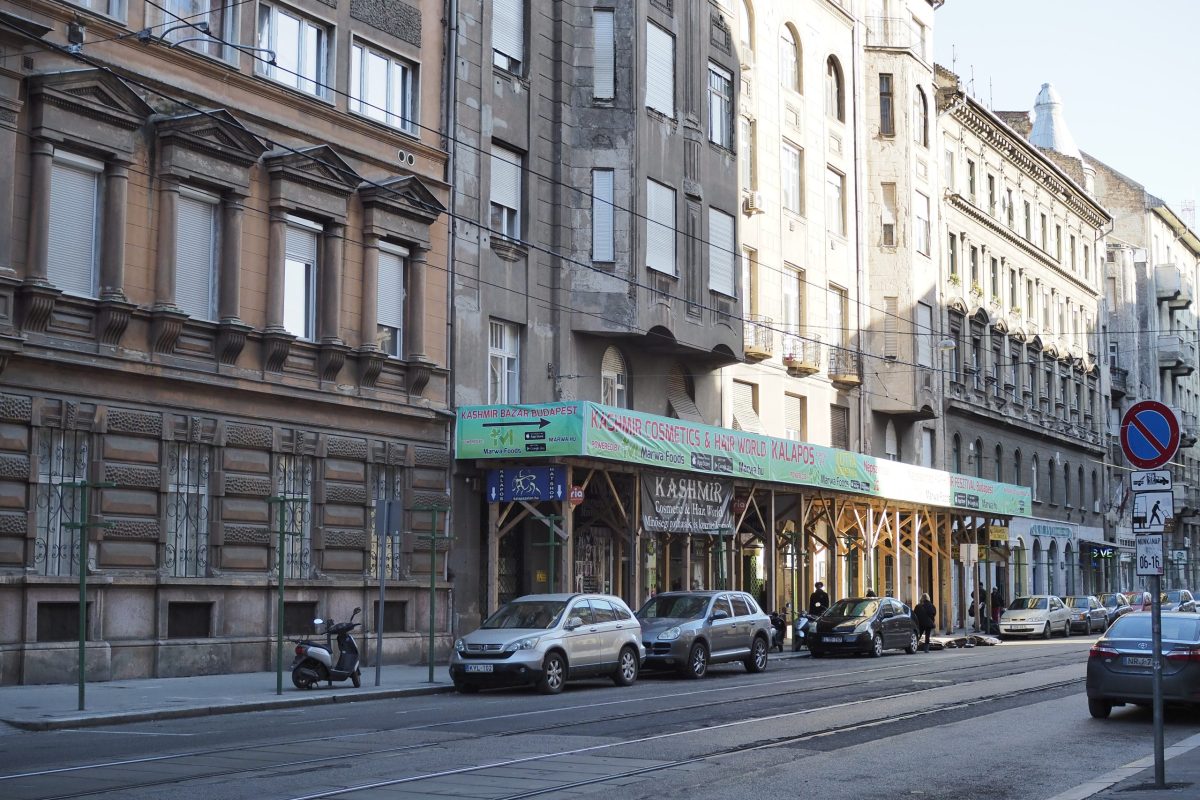
Nészínház street in Budapest
The Budapest Living Lab of Népszínház street, a multi-cultural area facing gentrification, aims to upgrade public spaces and enhance the public realm in order to improve the residents’ quality of life and the neighbourhood’s environmental resilience, without triggering gentrification and displacing people and businesses from the neighbourhood.
Involving the local municipality’s urban development company RÉV8, the Technical University of Budapest and KÉK, the pilot strives to co-design a public space and ground floor strategy with the participation of a broad range of local stakeholders. With interventions in the local commercial tissue as well as working closely with placemaking and affordable housing initiatives, the local partnership will work towards implementing a “critical placemaking” methodology.
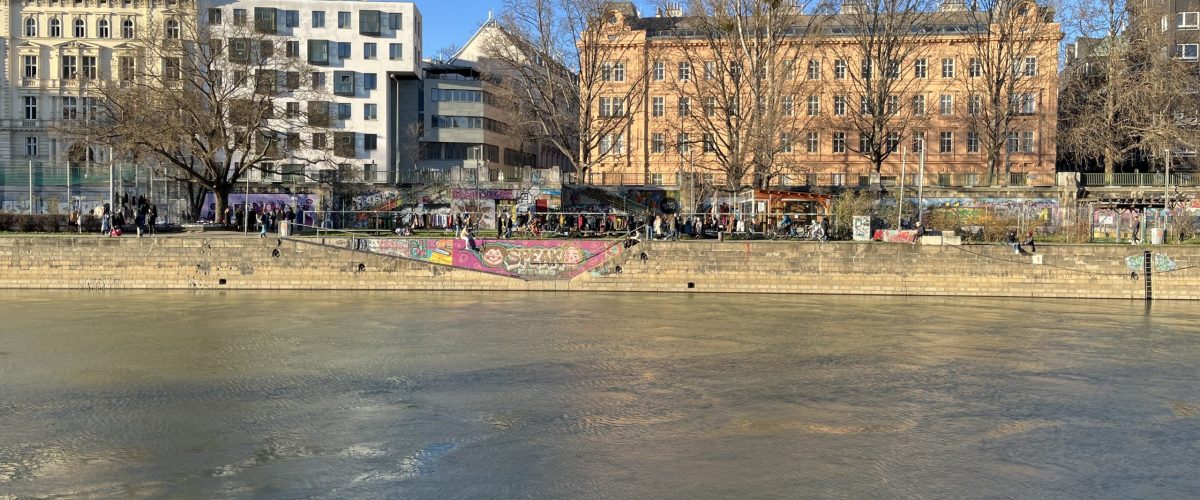
Waterfront in Vienna
The Vienna pilot aims to develop, test and implement a series of critical placemaking strategies in and around the city’s Donaukanal (Danube Canal), focusing on de-commercialisation and social inclusion. The local partnership will explore the role of waterfronts in relation to the 15-minute city concept and strategies to ensure accessibility of these spaces for the residents, focusing on vulnerable groups such as the elderly and young residents as well as communities of migrant background.
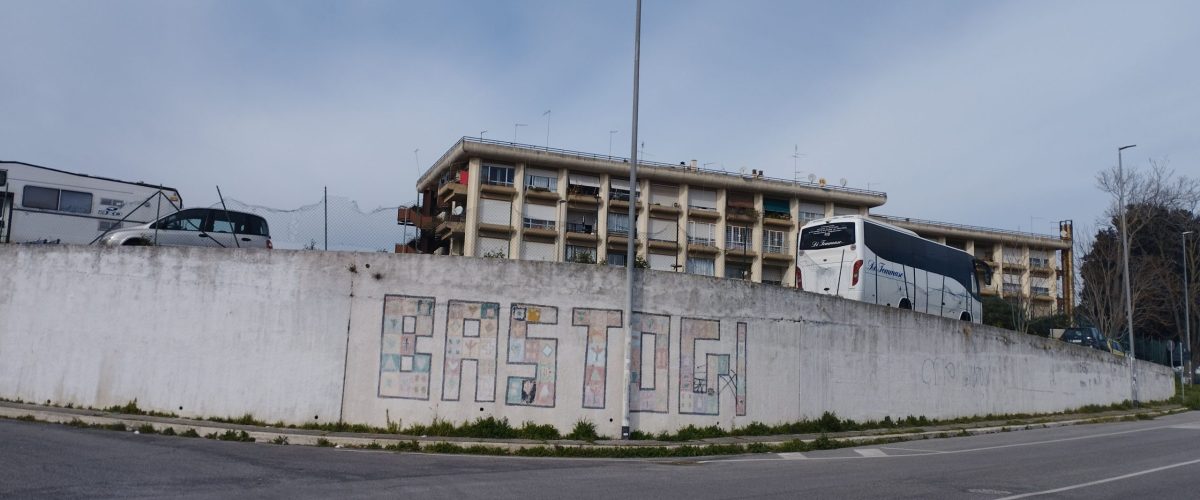
Youth engagement in Rome
The activities that form the foundation of the Rome Living Lab in Bastogi aim to experiment with placemaking as a tool to address urban poverty, foster community cohesion, promote employment, and develop a neighbourhood regeneration plan. This plan involves establishing a construction cooperative with the local youth.
Develop innovative methods, tools, and policies for inclusive spatial production, ensuring multigenerational and gender-inclusive use of public spaces.
Grant access to natural assets while safeguarding vulnerable groups from adverse effects like gentrification and commercialisation.
Provide cities with clear guidance on implementing critical and inclusive placemaking, integrating them systematically into urban planning practices.
Expanding placemaking strategies to activate public places in the framework of the 15-minute city concept by critically assessing current practices of placemaking and by adding a strong inclusion dimension.
Communicate the process and results of the applied research to a wide network of practitioners and researchers throughout Europe and beyond.
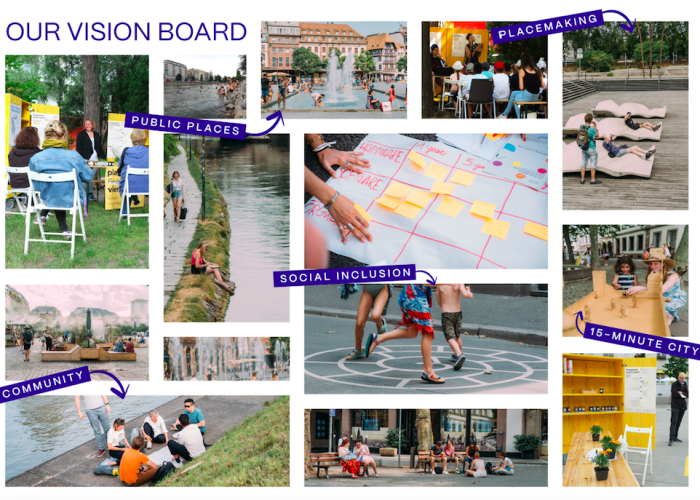

Duration: Starting 01/2024 with expected ending 12/2026
Contact: Dr. Levente Polyak, Eutropian GmbH
E-mail: levente.polyak@eutropian.org
Partners:
Nonna Roma (NR), ASD Bastog, Natural State, Nabolagshager, Rév8 Józsefváros Urban Rehabilitation and Development Company (RÉV8), Nuove Ri-Generazioni Lazio, Budapest University of Technology and Economics (BME), Hungarian Contemporary Architecture Centre (KÉK), Sintef, Norwegian University of Science and Technology (NTNU), Social Design – University of Applied Arts Vienna (SDS), Eutropian, Superwien.
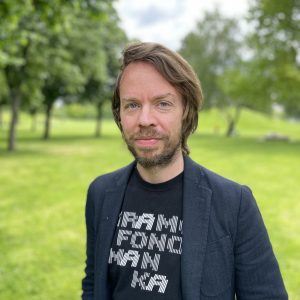
| Cookie | Duration | Description |
|---|---|---|
| cookielawinfo-checkbox-analytics | 11 months | This cookie is set by GDPR Cookie Consent plugin. The cookie is used to store the user consent for the cookies in the category "Analytics". |
| cookielawinfo-checkbox-functional | 11 months | The cookie is set by GDPR cookie consent to record the user consent for the cookies in the category "Functional". |
| cookielawinfo-checkbox-necessary | 11 months | This cookie is set by GDPR Cookie Consent plugin. The cookies is used to store the user consent for the cookies in the category "Necessary". |
| cookielawinfo-checkbox-others | 11 months | This cookie is set by GDPR Cookie Consent plugin. The cookie is used to store the user consent for the cookies in the category "Other. |
| cookielawinfo-checkbox-performance | 11 months | This cookie is set by GDPR Cookie Consent plugin. The cookie is used to store the user consent for the cookies in the category "Performance". |
| viewed_cookie_policy | 11 months | The cookie is set by the GDPR Cookie Consent plugin and is used to store whether or not user has consented to the use of cookies. It does not store any personal data. |
